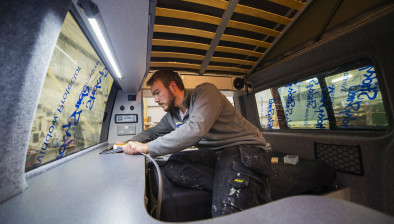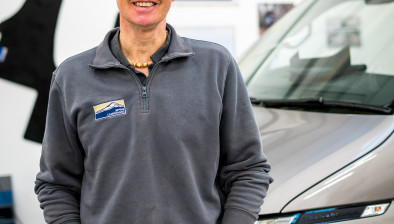Jerba Campervans secures Fair Tax Mark certification
North Berwick-based Jerba Campervans has secured its first Fair Tax Mark certification, and joins the growing movement of responsible businesses who are proud to ‘say what they pay with pride’.

Jerba Campervans was launched in 2006 and specialises in converting and customising Volkswagen Transporter vans for those passionate about adventure and the outdoors. Since 2018 the company has been 100% employee-owned.
As part of the accreditation process, Jerba Campervans has published a Fair Tax Mark Statement that makes clear:
- Who owns and controls the business
- What profits the business has made in recent years
- How much tax has been charged and an explanation for any variances with the headline rate of tax over that period
Simon Poole, director of Jerba Campervans, said: “Being open and upfront about the tax we pay is something that we feel is such an important statement to make. In an age where too many multinational firms seem to take advantage of international tax loopholes, anything we can do to raise the profile of good and honest tax practice can only be a positive thing. We were delighted to hear about the Fair Tax Mark and now even more delighted to become fully certified.”
The Fair Tax Mark is an independent certification, which recognises organisations that demonstrate they are paying the right amount of corporation tax in the right place, at the right time.
More than 55 businesses have now been certified. These include national brands such as Timpson, Lush, and Richer Sounds, FTSE listed companies including SSE and Marshalls Plc., as well as co-operatives, family businesses and social enterprises.
Paul Monaghan, chief executive, Fair Tax Mark, said: “We are delighted to announce that Jerba Campervans is the first business in the automotive sector to achieve the Fair Tax Mark, and is demonstrating a commitment to responsible tax conduct. It’s great to see Jerba ‘say what they pay with pride’, and for this to sit alongside other ethical credentials, such as being 100% employee-owned.”
“The public rightly expects responsible behaviour, but far too often they’re reading headlines that describe the tactics businesses employ to avoid contributing the tax they should to the public purse.
“It is estimated that annually, due to corporate profits being shifted to tax havens, corporate tax revenue losses in the UK amount to at least £7bn. Just think of the nurses, doctors and teachers we could employ, or the renewable energy infrastructure we could build if that tax was paid as it should be?”
Polling commissioned by the Fair Tax Mark from ICM has recently found record levels of post-COVID concern among the public about the use of tax avoidance practices by business in the UK.
Over three-quarters of people responded said that they would rather shop with (79%) or work for (82%) a business that can prove it is paying its fair share of tax. Eight in ten people (82%) believe businesses benefiting from Government bailouts should be forced to agree terms that prohibit tax avoidance and enforce responsible tax conduct.








